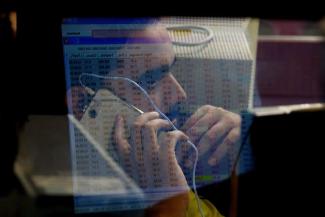Business leaders
Uncertainty is the new norm

In a knee jerk reaction, the Karachi Stock Exchange index plunged, but recovered quickly. The capital markets’ behaviour was generally the same around the world.
The immediate impact on Pakistan’s commodity and currency markets was not clear, but business leaders expressed extreme nervousness over Trump’s victory in private conversations. They felt that world affairs had become unpredictable and worried that Prime Minister Nawaz Sharif might not grasp the sensitivity of the situation. None of the business leaders I talked to wanted to comment on the record, but off the record, they admitted that they did not know what to worry about more: a possible trade war or new dynamics in geopolitics.
Pakistan will certainly feel the impact of the Trump presidency. Pakistan’s economy is small, and so is its share in global trade. The country depends on the USA in several ways – as an important military ally and as a major trading partner, for instance.
During the campaign, the president-elect threatened repeatedly to slap sanctions and higher tariffs on trade partners. He also asserted that he would “punish annoying allies” without naming names.
One risk business leaders see is that there may be a harsh backlash if even a minor terrorist attack should happen in the USA. Trump’s anti-Muslim campaign rhetoric was certainly not reassuring, nor were his slogans concerning trade and immigration.
The USA consumes a big chunk of Pakistan’s exports, and the bilateral trade balance is currently tilted in Pakistan’s favour. Pakistan’s annual exports to the USA are worth $ 4 billion, while the imports from the USA only amount to $ 1.1 billion. Almost one fifth of Pakistan’s exports go to the USA, but only three percent of the imports come from there. Accordingly, new trade barriers would be painful.
Many Pakistani migrants live in the USA, and the money they remit boosts Pakistan’s foreign-exchange reserves. In the fiscal year of 2015/16, they sent home $ 2.4 billion. That sum equals 15 % of the remittances to Pakistan. Curbs on migration could reduce the monetary flow which helps to pay for Pakistan’s imports.
Some analysts take an extreme view. They see 11/9 (9 November 2016), when Trump’s victory was announced, as a similarly important turning point in the global politics as 9/11 (11 September 2001) when Al Qaida attacked the World Trade Center in New York City and the Pentagon in Washington D.C.
It has been noticed, of course, that Trump won the elections even though his opponent Hillary Clinton got at least 2.5 million more votes. Observers point out that the international community would look down on any developing country where the electoral law allowed a radical leader to become head of state with 46 % of the popular vote while his more moderate opponent lost with 48 %.
According to the chief executive of a major industrial group, Trump’s victory confirms the lesson of Britain’s vote to leave the EU in June: “Uncertainty is the new norm in the modern world.” In his eyes, businesses have the capacity to turn a bad situation, but they struggle to cope with too much uncertainty.
Another business leader says that Republican US administrations tend to be friendlier towards Pakistan than those of Democrats. He adds: “If we put our house in order and promote corporate culture, things will be alright, no matter who occupies the White House.”
Prime Minister Sharif managed to get hold of Trump on the phone in November, and his office published a transcription. Apparently the president-elect said that Pakistan is “amazing with tremendous opportunities” and he would love to come to this “fantastic place of fantastic people”. On the downside, it soon became obvious that Trump had acted in an unconventional, role-defying way, which indicates that he may prove as erratic a president as he was a presidential candidate.
Pakistani economists are reluctant to comment and say they would like to wait for Trump’s first 100 days in office before stating an opinion. “Much will depend on the team he puts together,” one senior economist says. Without knowing who his key advisers are, “it is difficult to say how he intends to negotiate domestic and foreign policy challenges.”
Afshan Subohi is a business journalist and works for Dawn, a national newspaper in Pakistan.
asubohi@hotmail.com







